Ditch the Distractions: Supporting Kids and Teens with Phone Notifications. How to help kids with managing device notifications and maintaining their digital well-being.
https://bit.ly/OlyMSdd
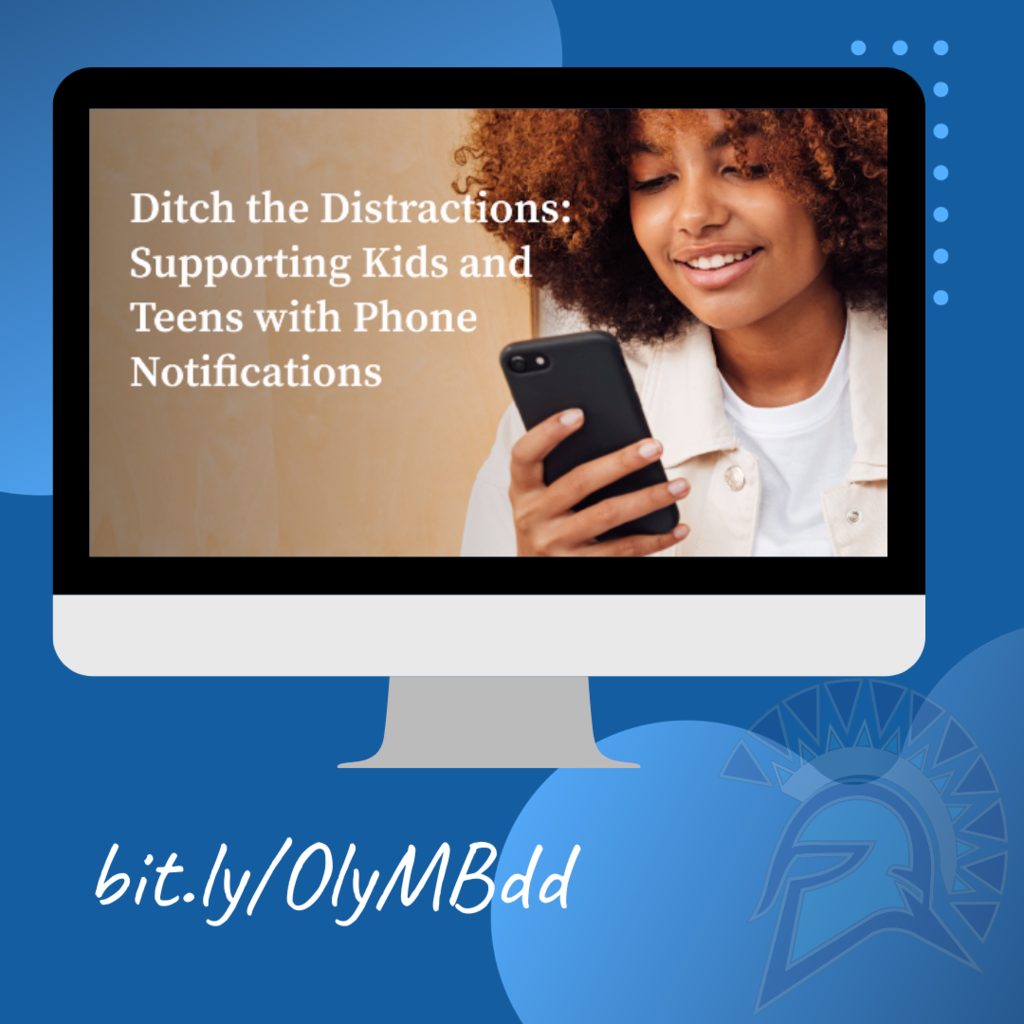
Family Tip 4: Watch and play together
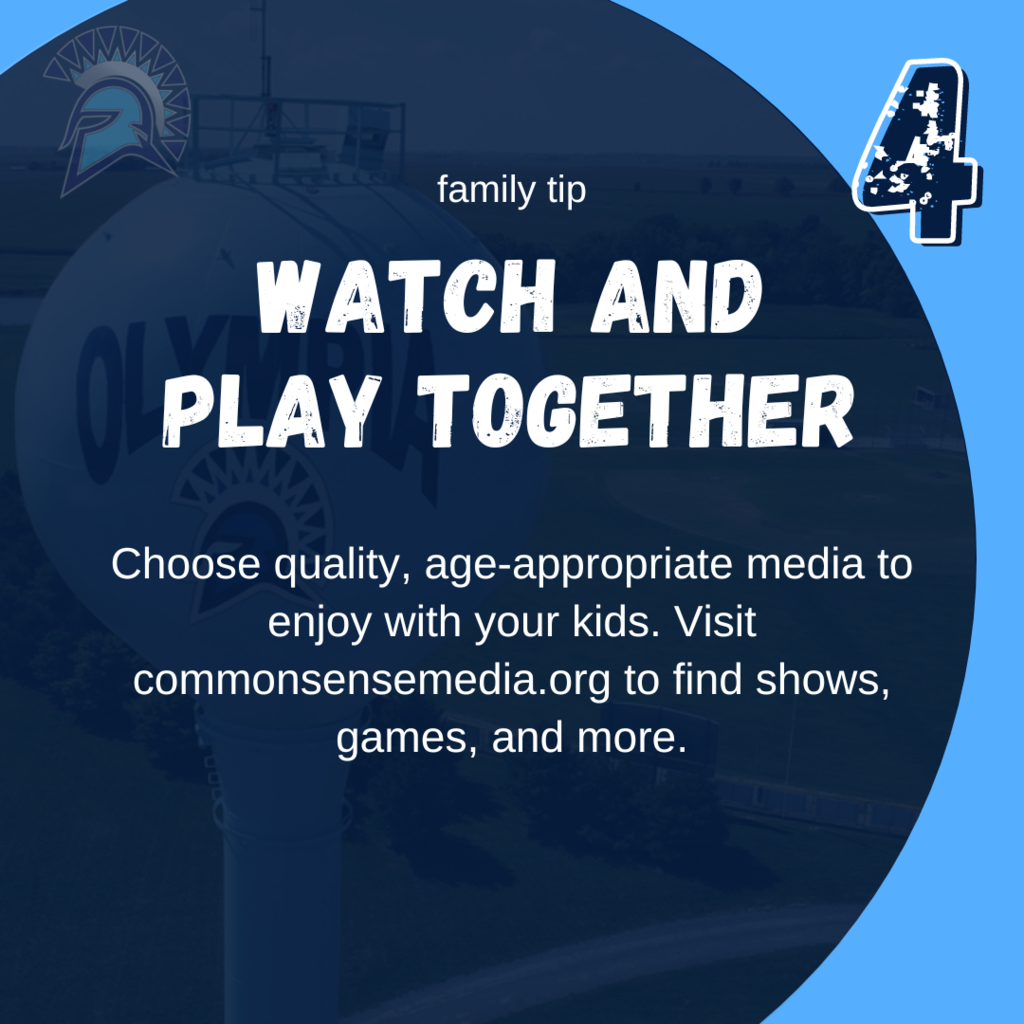
Only one week away! Sign up for Zoom link to show up in your inbox. All parents encouraged to join us.

Article: New Healthy Media Habits for Young Kids
Now that screen-time recommendations are more flexible, it's time for new rules.
~Caroline Knorr
https://bit.ly/OlyMBCK
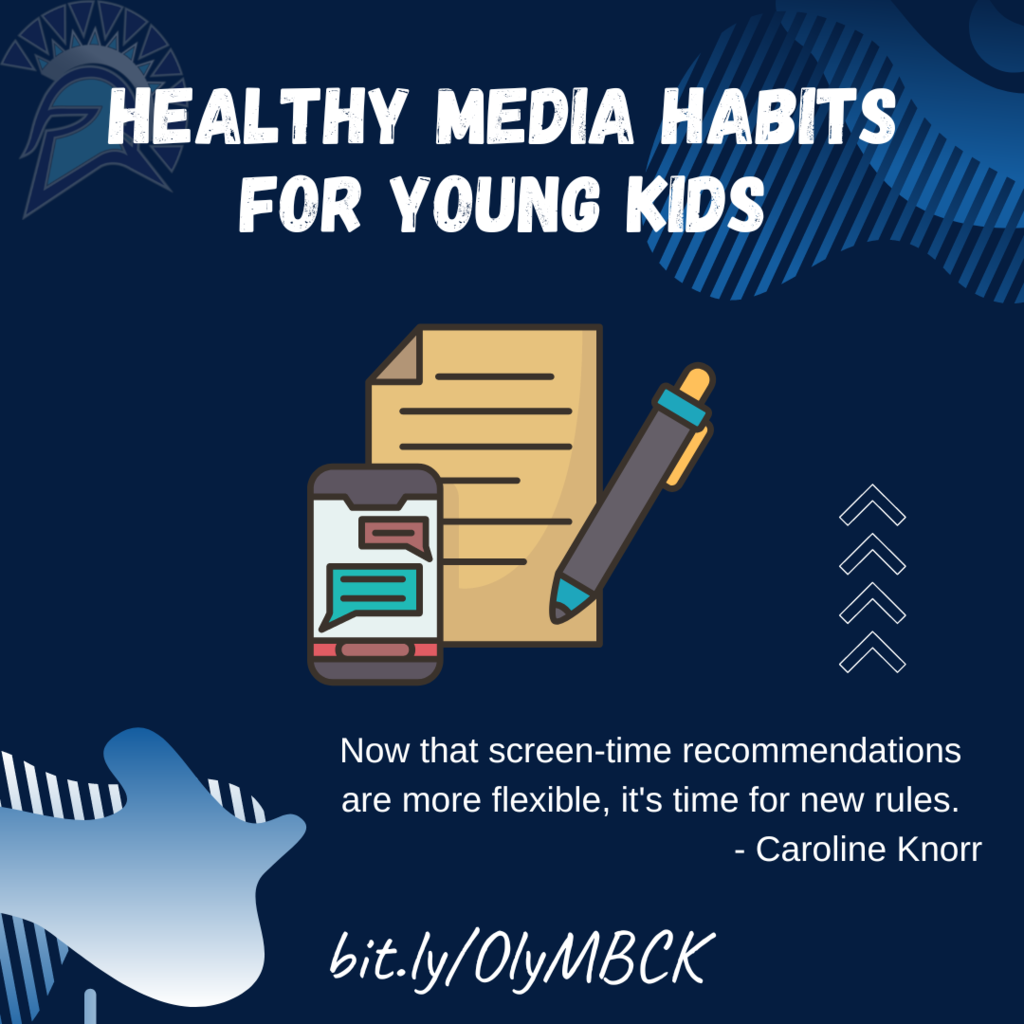
Family Tip 3: Establish clear family rules
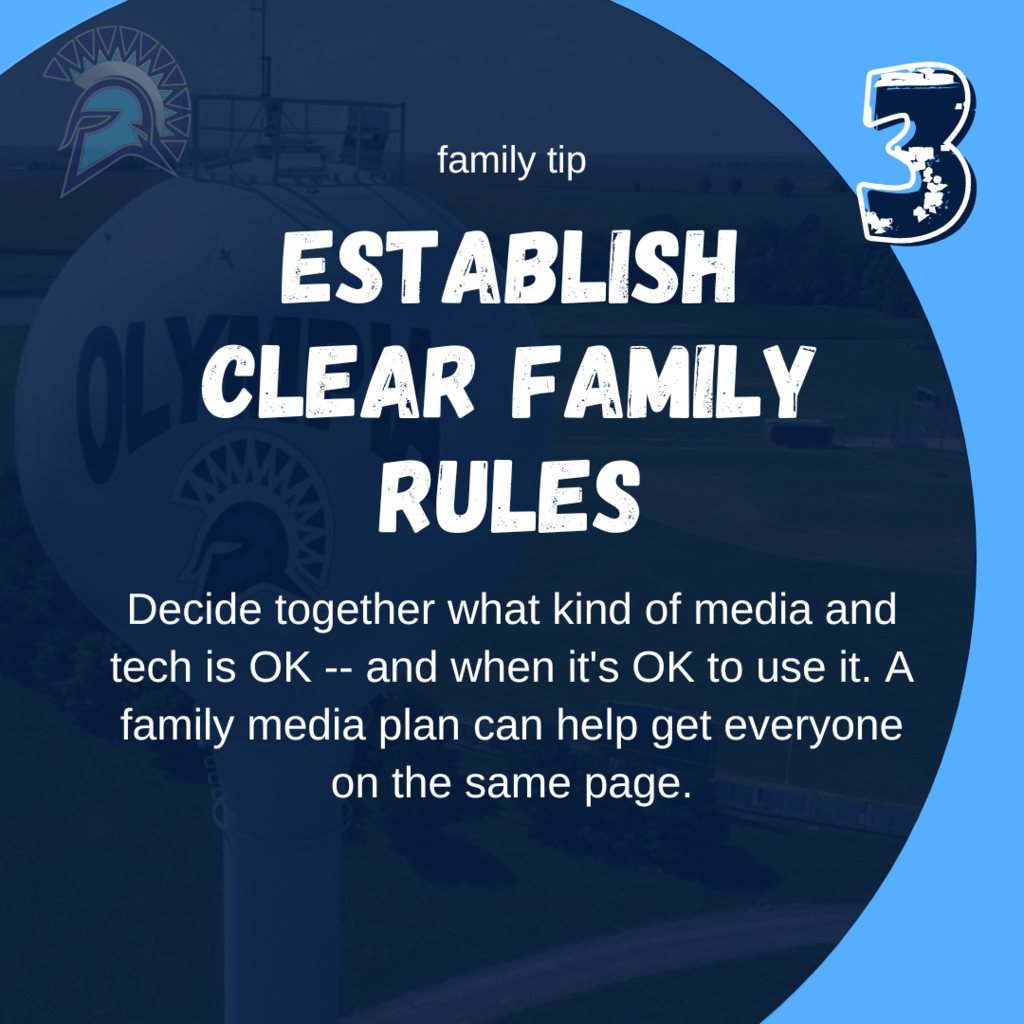
Concerned about your kid's digital life? Here are five signs that they have a healthy relationship with screens. bit.ly/OlyMBHR
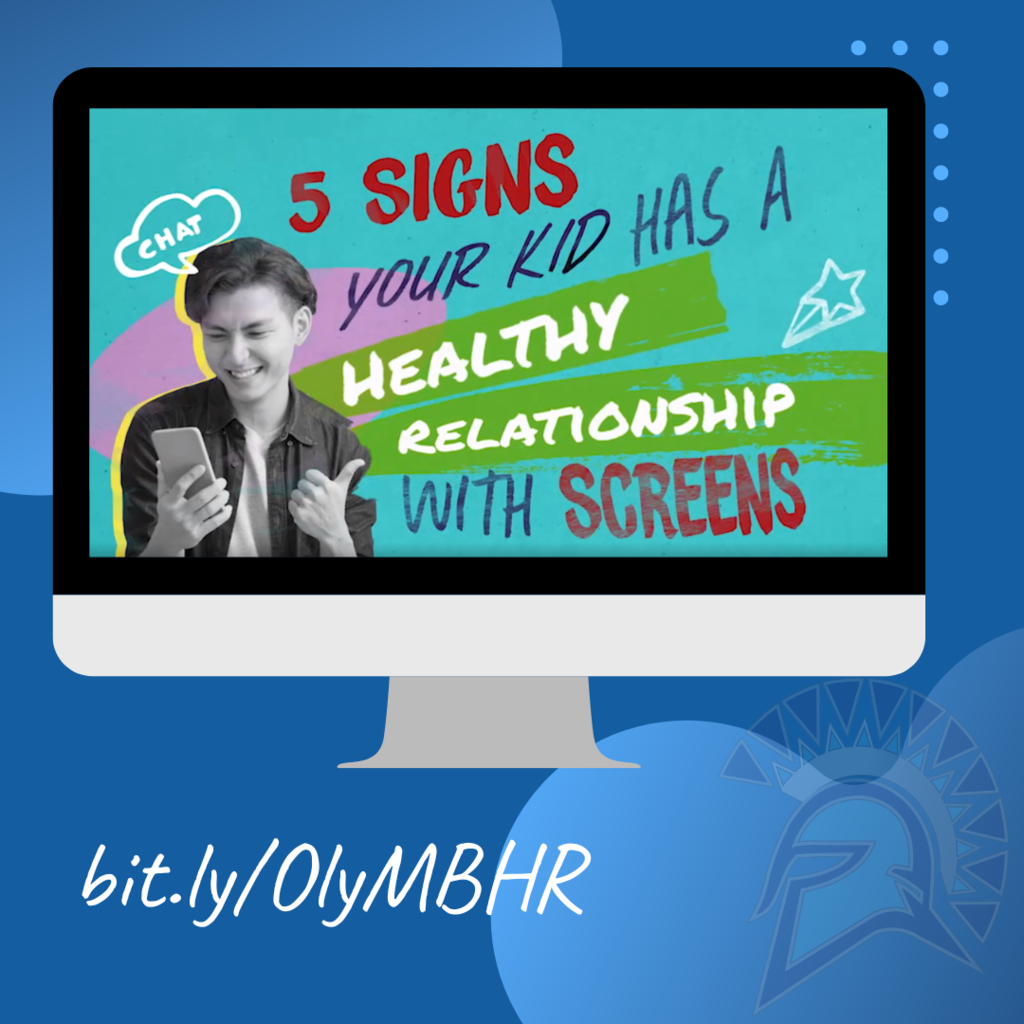
Did you know that as a Spartan Parent you have access to parent supports and coaching 24/7? This school year we have a partnership with Parent Guidance. Check out their website - https://parentguidance.org
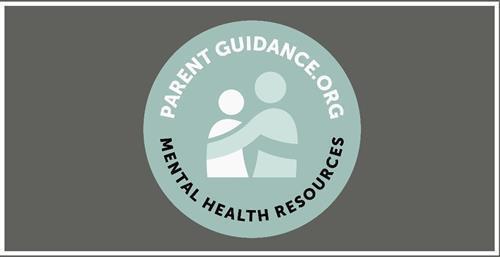
Happy School Board Appreciation Day to our school board members! Thank you for all you do for the District.

Looking for ways to manage your kid's device use? Check out these five easy screen-time tips. bit.ly/OlyMB5T
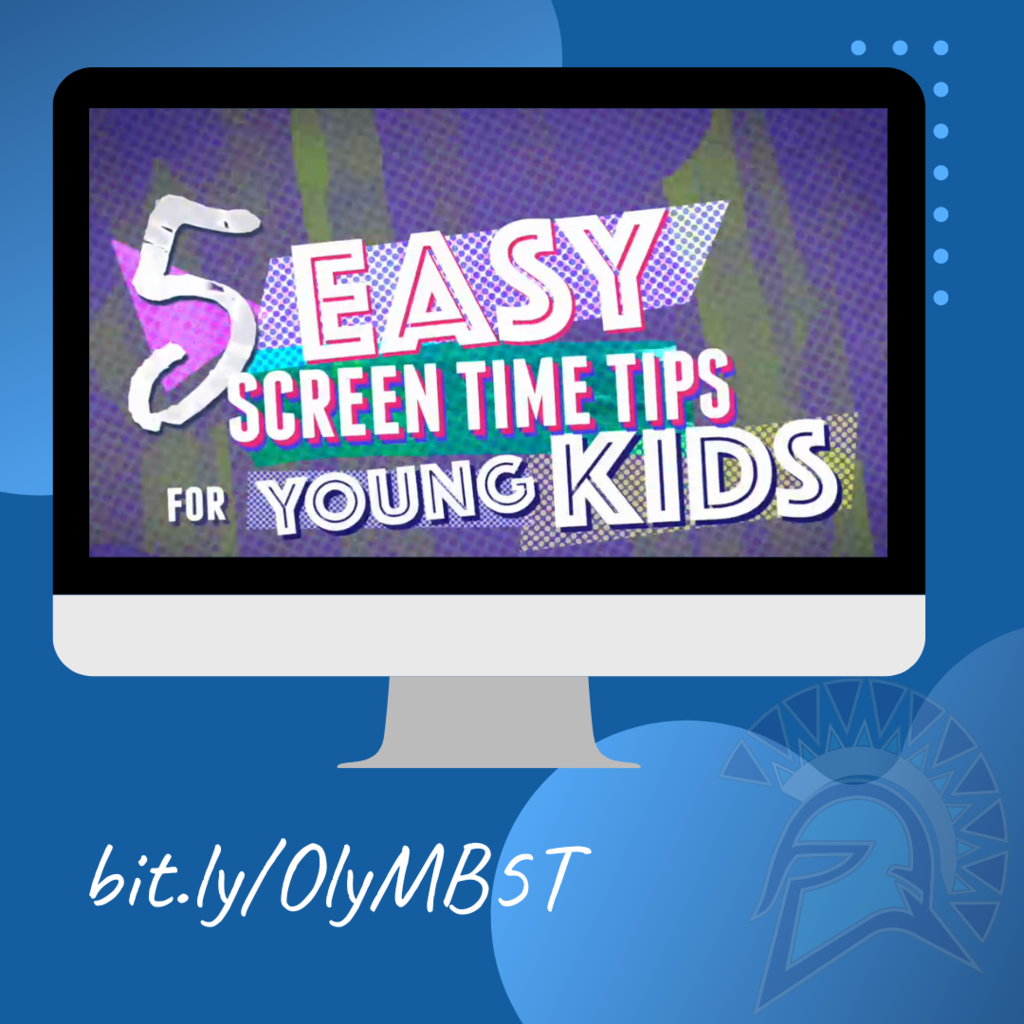
Families, our next parent session is only 2 weeks away. Join us for this FREE hot topic session on Emotional Regulation.

Family Tip 2: Try parental controls
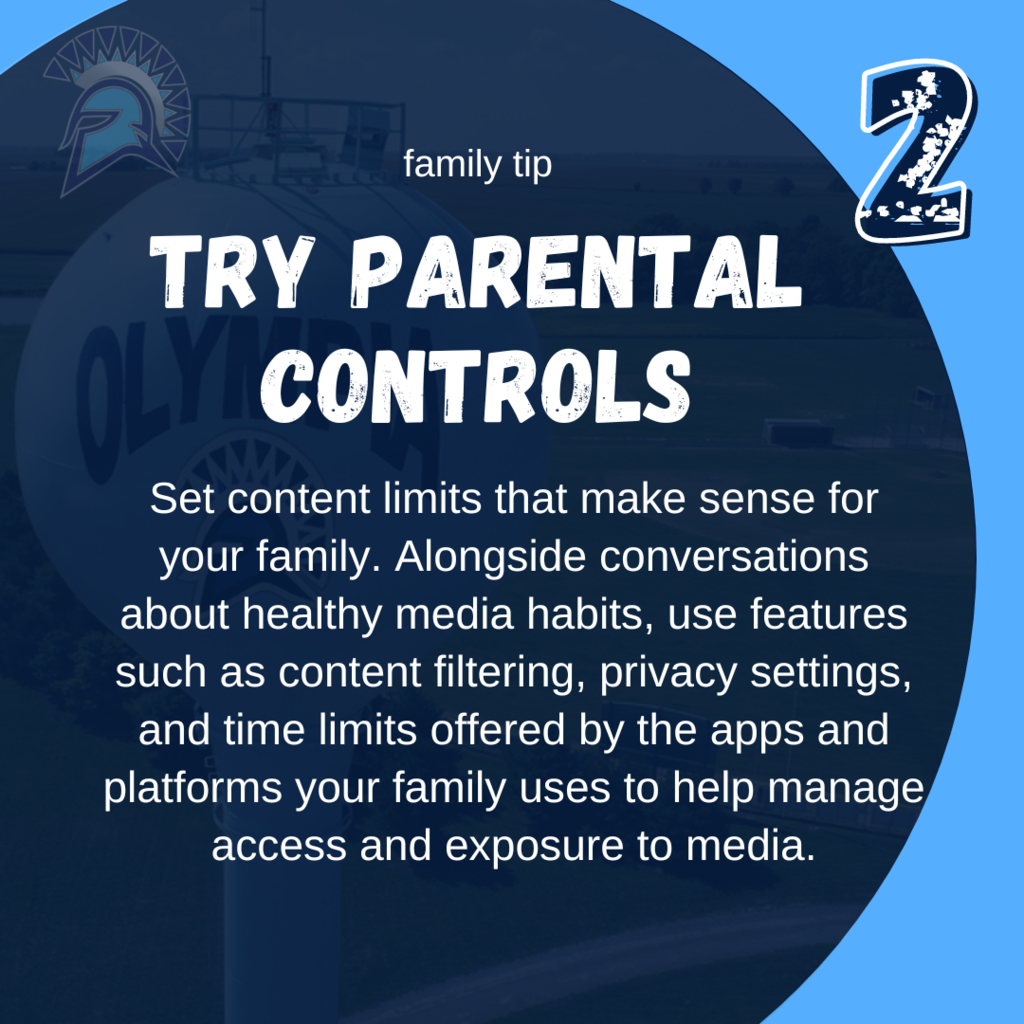
Screen time; the reality is that there really is no magic number that's "just right." What's more important is the quality of kids' media, how it fits into your family's lifestyle, and how you engage your kids with it. Read more: http://bit.ly/OlyScreenTime

Family Tip 1: Create screen-free times and zones
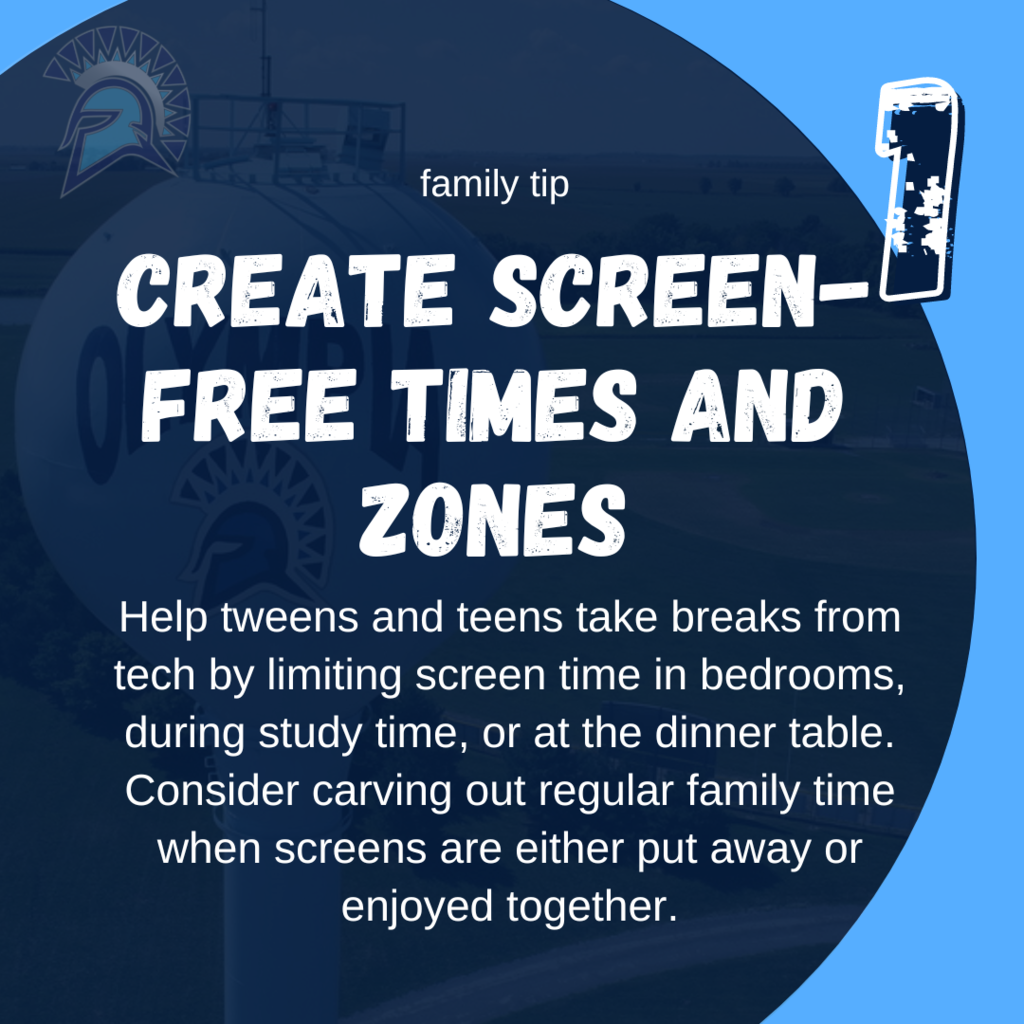
Upcoming Family Nights!

Do you multitask in front of your kids? Check out that and other solutions to help your child reduce multitasking during homework time.
bit.ly/OlyMBMT
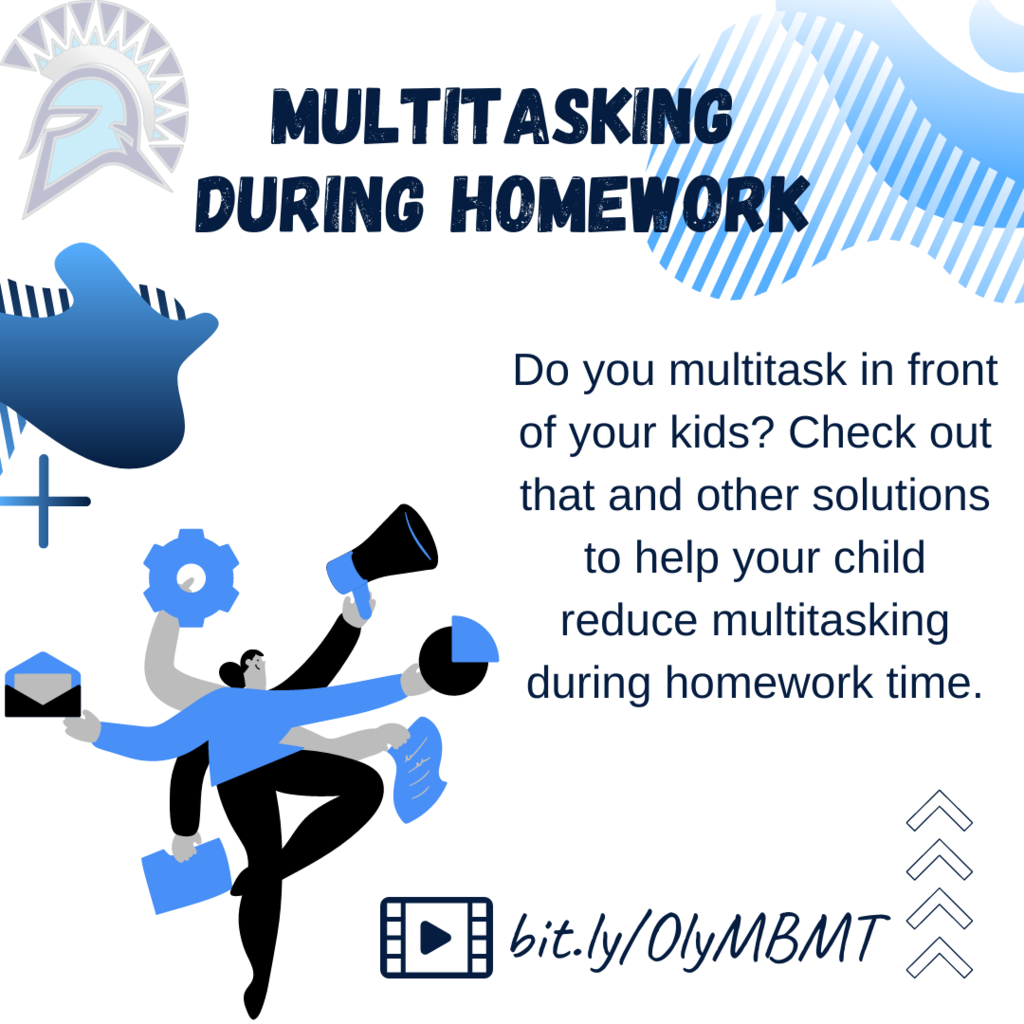
Upcoming session on Emotional Regulation coming November 28th via Zoom at 6:00. Register today!

Help keep media/tech use in check by following a few simple practices: 1. Create screen-free times and zones 2. Try parental controls 3. Establish clear family rules 4. Watch and play together 5. Help kids identify healthy behaviors Read more: http://bit.ly/OlyMBTipsE

It's easy to get distracted from homework (and life) when the phone never stops pinging and the next episode plays automatically. Let's set some common sense guidelines by signing this Family Media Agreement within your family: bit.ly/OlyAgree

This year, the Olympia National Honor Society is sponsoring a Toys for Tots Drive at the girls home basketball games on Nov 27th and 28th, against Prairie Central, then Dee-Mack. New toys or cash donations are appreciated! Bring your family and friends to enjoy the games and help support your local Toys for Tots!

Reminder: Today Wednesday, November 1st is an Early Release Day for Olympia students. OHMS students dismiss at 11:30, Elementary students dismiss at noon.

